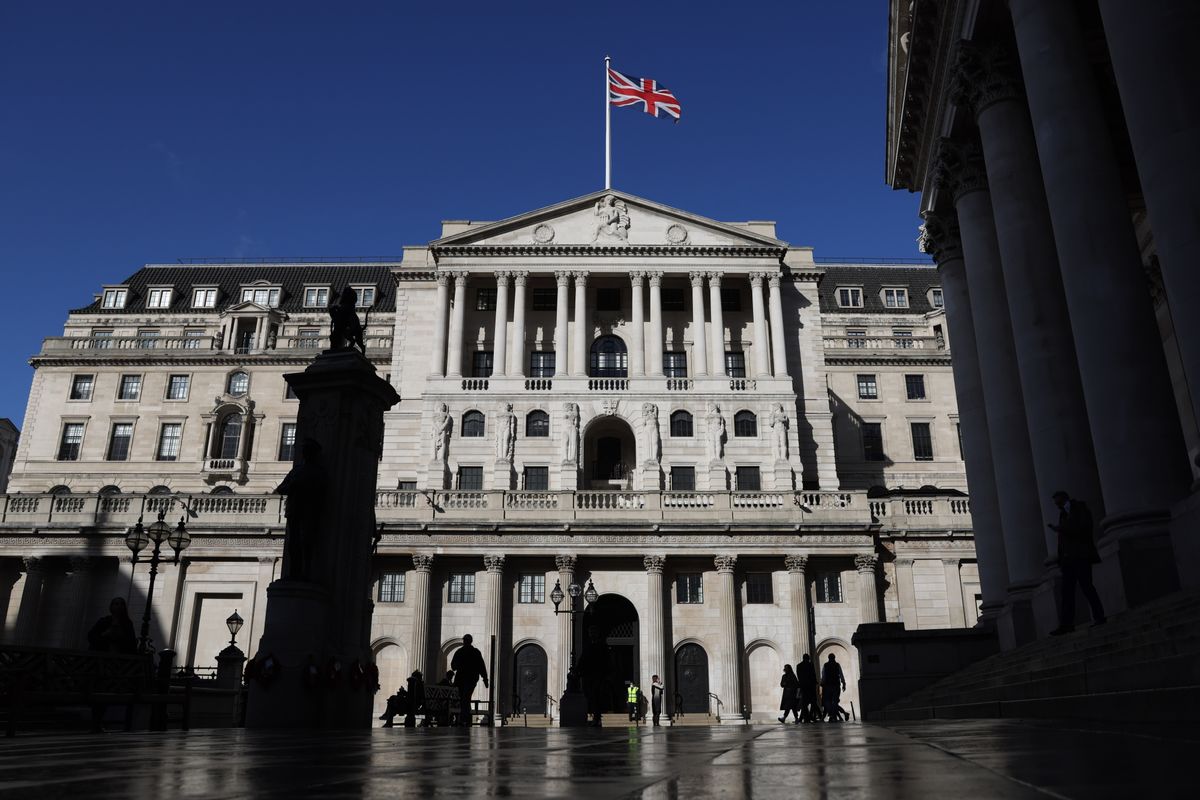Bank of England Demands Crypto Exposure Disclosures by March 2025
14.12.2024 12:00 1 min. read Kosta Gushterov
The Bank of England is giving businesses until March 2025 to report their exposure to cryptocurrency assets.
This move, announced by the bank’s Prudential Regulation Authority (PRA), aims to collect detailed information from companies about their current and future dealings with digital assets.
The collected data will help the Bank of England and PRA refine their approach to crypto assets, shaping policies to assess the risks and rewards associated with them. The data will also allow regulators to monitor the financial stability impact of cryptocurrencies.
Companies are required to disclose various aspects of their crypto activities, including their business involvement with digital assets, revenue generated from these activities, and risk management practices. Additionally, they must outline how they track their crypto holdings, identify significant risks, and explain how they plan to address them.
According to the PRA’s guidelines, any decision to engage with crypto assets must align with the company’s overall risk strategy and approval from senior management.
This directive follows the PRA’s previous framework issued in 2022, which acknowledged that firms still cannot fully eliminate the risks associated with permissionless blockchain networks.
-
1
Australia Tests CBDCs in 24 Separate Real-World Finance Use Cases
10.07.2025 19:00 2 min. read -
2
U.S. House Passes Sweeping Clarity and GENIUS Acts
17.07.2025 23:29 1 min. read -
3
Senate Confirms Crypto-Linked Nominee Jonathan Gould to Head OCC
11.07.2025 9:00 2 min. read -
4
Hong Kong to Launch Stablecoin Licensing Regime on August 1, 2025
29.07.2025 13:11 1 min. read -
5
U.S. Regulators Define Crypto Custody Rules for Banks
15.07.2025 9:00 1 min. read
Hong Kong to Launch Stablecoin Licensing Regime on August 1, 2025
The Hong Kong Monetary Authority (HKMA) has officially released documentation outlining its upcoming stablecoin issuer licensing framework, which is set to take effect on August 1, 2025.
Nigeria Signals Greenlight for Stablecoin Innovation Under New Regulatory Vision
Nigeria is taking a decisive step toward embracing stablecoin adoption, as the country’s Securities and Exchange Commission (SEC) outlined its readiness to support digital currency innovation—under clear regulatory conditions.
South Korea Urges Asset Managers to Limit Exposure to Crypto Stock Like Coinbase,MicroStrategy
South Korea’s top financial watchdog has issued informal guidance urging local asset managers to scale back their investments in crypto-related stocks, according to a Korean Herald report.
SEC Reverses Bitwise ETF Approval Just Hours After Greenlight
In a surprising move on Tuesday, the U.S. Securities and Exchange Commission (SEC) initially approved Bitwise’s proposal to convert its cryptocurrency index fund into a full-fledged exchange-traded fund (ETF)—only to halt the decision just hours later.
-
1
Australia Tests CBDCs in 24 Separate Real-World Finance Use Cases
10.07.2025 19:00 2 min. read -
2
U.S. House Passes Sweeping Clarity and GENIUS Acts
17.07.2025 23:29 1 min. read -
3
Senate Confirms Crypto-Linked Nominee Jonathan Gould to Head OCC
11.07.2025 9:00 2 min. read -
4
Hong Kong to Launch Stablecoin Licensing Regime on August 1, 2025
29.07.2025 13:11 1 min. read -
5
U.S. Regulators Define Crypto Custody Rules for Banks
15.07.2025 9:00 1 min. read


